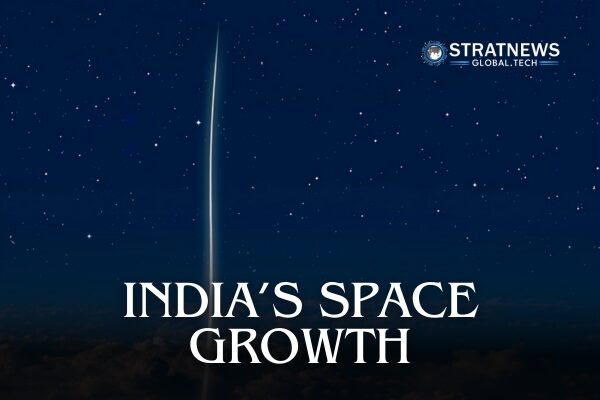India Aims At 8% Jump In Global Space Market Share By 2033: KPMG Report
India’s space sector is racing toward a major leap, aiming to secure 8% of the global space economy by 2033, according to a new KPMG-CII report. The document, “Propelling India into a New Era of Space and Innovation,” points to robust policy moves, deep private participation, and a laser focus on downstream services as the primary catalysts for this jump from the current 2-3% share.
Scale On The Horizon
India’s space economy currently stands at USD 8.4 billion and is projected to hit USD 44 billion by 2033, with USD 11 billion from exports alone. The global space industry is pegged at USD 596 billion (2024), with an expected annual growth of 9% to reach USD 1.8 trillion by 2035.
Private Sector: From Sidelines To Centre Stage
Nearly 200 startups and established players now drive innovation in satellite manufacturing, launch vehicles, and, most critically, applications like satellite communication, EO, and navigation. ISRO is no longer the sole player; private firms get greater access thanks to FDI liberalisation, new procurement models, and a single-window clearance approach.
The Real Disruptor: Downstream Services
KPMG’s report underlines India’s big game-changer is not rocket launches, but deep integration of space-derived data and services into governance, logistics, agriculture, disaster management, and financial systems. Programs like PM Gati Shakti and Bhuvan NextGen showcase these applications at scale.
Security And Policy Ambition
India is augmenting capabilities with 52 planned defence satellites and landmark missions such as Chandrayaan-3 and the Indo-US NISAR launch. The Bharatiya Anthariksha Station is slated for 2035, and the first Indian astronaut on the Moon by 2040 remains on the agenda.
Bottlenecks In Focus
To reach global ambitions, India must address digital literacy gaps, device interoperability issues with NavIC, policy ambiguities, and commercialisation challenges among SMEs and government stakeholders. The report stresses the need for rapid capacity-building, standardised procurement, and programmatic integration with flagship schemes.
India is at an inflection point. With the right execution, it stands poised to become one of the world’s leading space economies.


